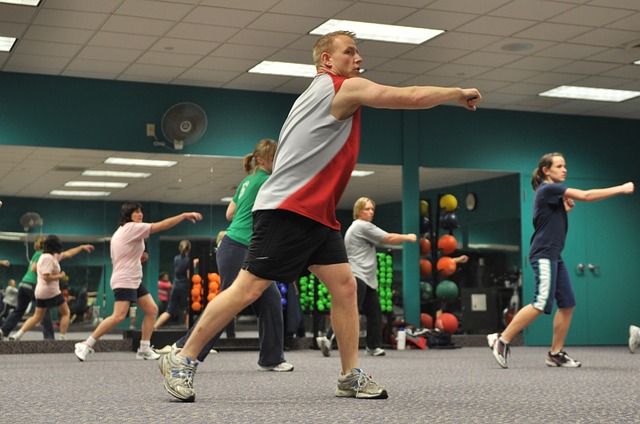From Heart Health to Happiness: The Multiple Rewards of Cardio Exercise
In our modern-day lifestyle, prioritizing health has become increasingly vital. Among the myriad of approaches to improving well-being, cardiovascular exercise stands out as one of the most effective. From bolstering heart health to enhancing mood, the advantages of cardio workouts are vast and profound. In this article, we delve into the extensive benefits of cardiovascular exercise, exploring its impact on physical fitness, mental health, and longevity.
Understanding the Significance of Cardiovascular Exercise
Cardiovascular exercise, often referred to as cardio or aerobic exercise, encompasses any activity that elevates the heart rate and enhances oxygen consumption over an extended period. Whether it's brisk walking, jogging, cycling, swimming, or dancing, regular engagement in cardio workouts offers a plethora of benefits for individuals of all ages and fitness levels.

Key Advantages of Cardiovascular Exercise
1. Enhanced Heart Health:
Cardio workouts fortify the heart muscle, improve blood circulation, and lower blood pressure, thereby diminishing the risk of heart disease, stroke, and other cardiovascular ailments. By facilitating efficient oxygen delivery to tissues and organs, cardiovascular exercise fosters overall cardiovascular health and functionality.
2. Effective Weight Management:
Integrating cardio into your fitness regimen aids in burning calories and fat, facilitating weight loss and weight control. Whether your objective is to shed surplus pounds or uphold a healthy weight, regular aerobic exercise contributes to a calorie deficit and encourages fat reduction, particularly when coupled with a balanced diet.
3. Augmented Physical Fitness:
Cardiovascular exercise elevates physical fitness by enhancing endurance, stamina, and cardiovascular capacity. Over time, consistent cardio workouts lead to improved lung function, better oxygen utilization, and heightened energy levels, empowering individuals to effortlessly execute daily activities and confront physical challenges.
4. Uplifted Mood:
Cardio workouts prompt the secretion of endorphins, neurotransmitters that foster sensations of contentment, relaxation, and overall well-being. Routine aerobic exercise is associated with decreased symptoms of depression, anxiety, and stress, while also amplifying self-esteem, confidence, and general mood.
5. Prolonged Longevity and Disease Prevention:
Regular engagement in cardiovascular exercise correlates with an extended lifespan and a diminished likelihood of chronic diseases like type 2 diabetes, cancer, and osteoporosis. By advancing overall health and vitality, cardio workouts support longevity and quality of life as individuals age.
Incorporating Cardiovascular Exercise Into Your Routine
To fully harness the benefits of cardiovascular exercise, strive for at least 150 minutes of moderate-intensity aerobic activity or 75 minutes of vigorous-intensity aerobic activity per week, as advocated by health experts. Opt for activities that you enjoy and diversify your workouts to evade monotony and sustain motivation.
Conclusion
Cardiovascular exercise stands as a cornerstone of a wholesome lifestyle, furnishing an array of advantages for physical, mental, and emotional well-being. By integrating regular cardio workouts into your routine, you can bolster heart health, manage weight, refine fitness, elevate mood, and protract longevity. Whether you're walking, running, cycling, or dancing, every stride you take toward cardiovascular fitness propels you toward a healthier, happier existence.

FAQs About the Benefits of Cardiovascular Exercise
1. What is cardiovascular exercise, and why is it important for health?
Cardiovascular exercise, also known as cardio or aerobic exercise, involves activities that elevate the heart rate and increase oxygen consumption over a sustained period. It's crucial for maintaining heart health, managing weight, improving physical fitness, and enhancing overall well-being.
2. How frequently should I engage in cardiovascular exercise?
Health experts recommend aiming for at least 150 minutes of moderate-intensity aerobic activity or 75 minutes of vigorous-intensity aerobic activity each week. This can be spread across multiple days and may include activities like brisk walking, jogging, cycling, swimming, or dancing.
3. Can cardiovascular exercise aid in weight loss?
Yes, incorporating regular cardio workouts into your routine can assist in burning calories and fat, facilitating weight loss and management. When combined with a balanced diet, cardiovascular exercise contributes to creating a calorie deficit, which is essential for shedding excess pounds.
4. What are some examples of cardiovascular exercises I can try?
There is a wide range of cardiovascular exercises to choose from, including brisk walking, jogging, running, cycling, swimming, dancing, aerobics, and using cardio machines like treadmills, ellipticals, or stationary bikes. Choose pursuits that align with your interests and seamlessly integrate into your daily routine.
5. Does cardiovascular exercise have benefits for mental health?
Absolutely! Cardio workouts stimulate the release of endorphins, neurotransmitters that promote feelings of happiness and well-being. Regular aerobic exercise has been associated with reduced symptoms of depression, anxiety, and stress, while also enhancing mood and self-esteem.

6. Is there an age limit for engaging in cardiovascular exercise?
Cardiovascular exercise can benefit individuals of all ages, from children to older adults. It's crucial to adjust the intensity and duration of exercise according to individual fitness levels and health conditions. Before starting a new exercise program, especially if you have underlying medical concerns, consult with a healthcare professional.
7. How can I incorporate cardiovascular exercise into my daily routine?
Find activities that you enjoy and can easily incorporate into your schedule, such as walking during your lunch break, cycling to work, or attending a dance class in the evening. Set achievable goals, start gradually, and increase the intensity and duration of your workouts over time.
8. Can I still do cardiovascular exercise if I have joint problems or other health issues?
Yes, there are low-impact cardio options available that are gentle on the joints, such as swimming, water aerobics, cycling, and using elliptical machines. Always listen to your body, modify exercises as necessary, and consult with a healthcare professional before starting any new exercise program, especially if you have specific health concerns.
9. How long before I notice the benefits of cardiovascular exercise?
The benefits of cardiovascular exercise can be experienced relatively quickly, with improvements in mood, energy levels, and cardiovascular health often noticeable after just a few weeks of consistent exercise. However, long-term benefits, such as weight loss and enhanced fitness, require ongoing commitment and dedication.
10. Can I combine cardiovascular exercise with other forms of exercise, like strength training?
Absolutely! Combining cardiovascular exercise with strength training, flexibility exercises, and other forms of physical activity can provide a well-rounded fitness routine that targets various aspects of health and fitness. Strive for a balanced approach that includes a variety of exercises to maximize overall well-being.
Powered by Froala Editor





Leave a Reply